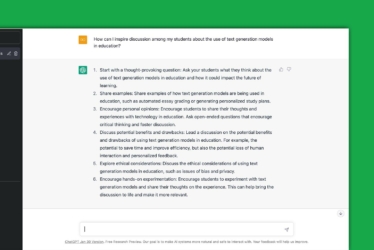Insights
The Potential of Learning Clubs
This year, I joined the online Learning Club pilot that was set up by the HRM Learning & Development department. It was aimed at young staff who, together with a small group of colleagues, wanted to work on their personal development, partly under the guidance of a coach. Using my own experience, this article examines the potential of Learning Clubs to enhance learning experiences in academic settings.

Learning Club pilot at Leiden University
In January 2021, HRM Learning & Development decided to pilot an online Learning Club to support university staff to develop their personal leadership, to enhance the organisation’s learning culture, and to promote the interconnectedness and the mutual exchange of learning experiences. During a six-month period, five online 1.5-hour sessions were organised in Microsoft Teams; three of which were guided by a coach. Each monthly session had its own theme (introduction, personal leadership, reaching your goals, communicating, and being energetic in your work) and was paired with a self-paced online New Heroes module. These monthly meetings were meant to motivate the participants and keep them focused on the online modules which can be hard to stick to independently. Collaborative learning is not only effective, but is also much more fun (source).
As a recent graduate and new employee at Leiden University, I decided to participate in this Learning Club pilot, together with five other young staff members. It was a luxury to have a couple of hours each month to work on our personal development process (as this often tends to end up at the bottom of my to-do list). The greatest benefit of this pilot was the creation of a small and safe learning community. We shared our experiences, questions, struggles, and achievements with personal development topics and supported each other, but also got a look behind the scenes of the work practices of other faculties and departments. The five themes were not only valuable for us but also for the university, because it is important that their employees are energetic in their work and communicate well.
The potential of Learning Clubs in an academic setting
A Learning Club promotes continuous learning, helps to structure learning activities, and increases learning outcomes through exchange with others (source). It has a lot of potential that could help multiple groups at Leiden University to work on their wellbeing and personal development and stimulate community building. So what are the best target groups that can benefit from a Learning Club?
Students
The first important target group are students. Learning Clubs could be a cost-effective solution to upscale student support and create online student-centred communities for study and collaboration purposes and social cohesion (source). With online Learning Clubs or peer-to-peer groups, students can tutor each other, review each other’s thesis projects, share their student experiences, discuss career opportunities, and support each other’s mental health and personal development. The coach or teacher can provide them with guided questions. It’s easier to scale up online peer-to-peer groups than on-site professional staff support, because of the sheer number of students. Besides that, it will create a more student-centred experience and the feeling of being part of a community. However, it’s important to remember that complex circumstances and challenges require support from professional staff. Due to high demand, some teachers and students at Leiden University have already established similar online communities.
Alumni
The second important target group that could benefit from collaborative learning are alumni. For recent graduates, it can be a challenge to start looking for their first job. An online Learning Club (with a coach) can support them during this first period of job searching. A coach can guide them in the right direction while the alumni share their questions, experiences, and lessons learnt and can use each other’s existing networks. The mentor network from Leiden University’s Career and Alumni services could benefit from this concept, since they already provide coaching sessions and a supporting network from alumni for students.
Teachers
The third important target group are teachers. They are looking for a community to share best practices on a more permanent basis. A Learning Club could be the perfect place for this. A perfect example is the Community of Practice on Education that Maastricht University will run in the second semester of 2021/2022.
Staff members
The final target group that could benefit from Learning Clubs are staff members. In particular, common positions that are in all departments and faculties such as the education administration offices, however are organised slightly differently everywhere. A Learning Club can create a community where they can share their work practices, ask how others do it, and learn how to do things differently.
Conclusion
After a successful pilot, HRM decided to continue the Learning Club for young staff and is currently coaching two new online groups. The biggest change compared to the initial pilot is that the five New Heroes learning modules are not predetermined anymore, but drawn up by the coach in consultation with the group to match their personal development goals. This means a more personalised learning experience.
Learning Clubs have exciting potential to be used more widely within the university across many audiences. Not just young staff members could benefit from the positive effects of collaborative learning, but the concept can also be applied to stimulate peer-to-peer learning among students during their curriculum, to offer coaching programmes for alumni, or to facilitate exchange in learning communities for teachers and staff members. It is an easily accessible way to get together and exchange experiences and ideas that everyone can learn and benefit from. It will enhance the learning culture within the university and it will fulfil the need for more connectedness and community building among the different faculties and departments. Especially in the era of remote education and work, online Learning Clubs can offer an effective way to still feel connected in a meaningful way. Also, now certain communication tools like Microsoft Teams are widely available at our university, the infrastructure is there to make this online connection happen today. Do you want to join ‘the club’?
Tips & tricks for running a Learning Club
Are you thinking about organising a Learning Club for a specific audience? Here are some tips and tricks to help you get started:
- Create belonging through an online community. Attending a Learning Club requires discipline and preparatory work. An online community makes it more scalable, ensures more interaction in-between the sessions, and promotes social cohesion and commitment to the university. This could be organised by creating a Microsoft Teams environment for asynchronous communication, such as regular discussion prompts and peer-to-peer feedback. For more information, see the links under ‘Read more’.
- Use a buddy system. If the participants are paired with a buddy, this can stimulate the communication in-between the sessions and they can encourage each other to start on time with the exercises.
- Personalise the experience. Send out a questionnaire in advance to the participants to find out what problems they are facing and what they would like help with. In this way, the Learning Club experience can be targeted to their needs.
- Stimulate reflective learning. The coach can have a big role during the sessions. Instead of letting it run its course and occasionally asking the participants a question that they should discuss, the coach could ask the deeper reflective questions (“Okay, but what is at the root of this problem?” or “How would you handle this in an actual work situation?”).
- Evaluate learning progress. Organise an evaluation or coaching session a few weeks or months after the last session to see how the participants are doing and to check if they are applying their new insights in practice. Has anything changed since their participation in the Learning Club and do they need additional coaching?
Read more
- Our free self-guided training Build Your Own Online Community on what is involved in building and maintaining engaged online communities
- Our free self-guided training Moderate Your Online Community to teach you some basic techniques to moderate your online community
- Our blog How to build an engaged online community
- Our blog How to moderate your online community
- Our blog Managing an online community: Do you need a ‘troll control’ plan?
Get in touch with the author

Emma Wiersma
Learning Experience Designer
e.m.wiersma@sea.leidenuniv.nl




